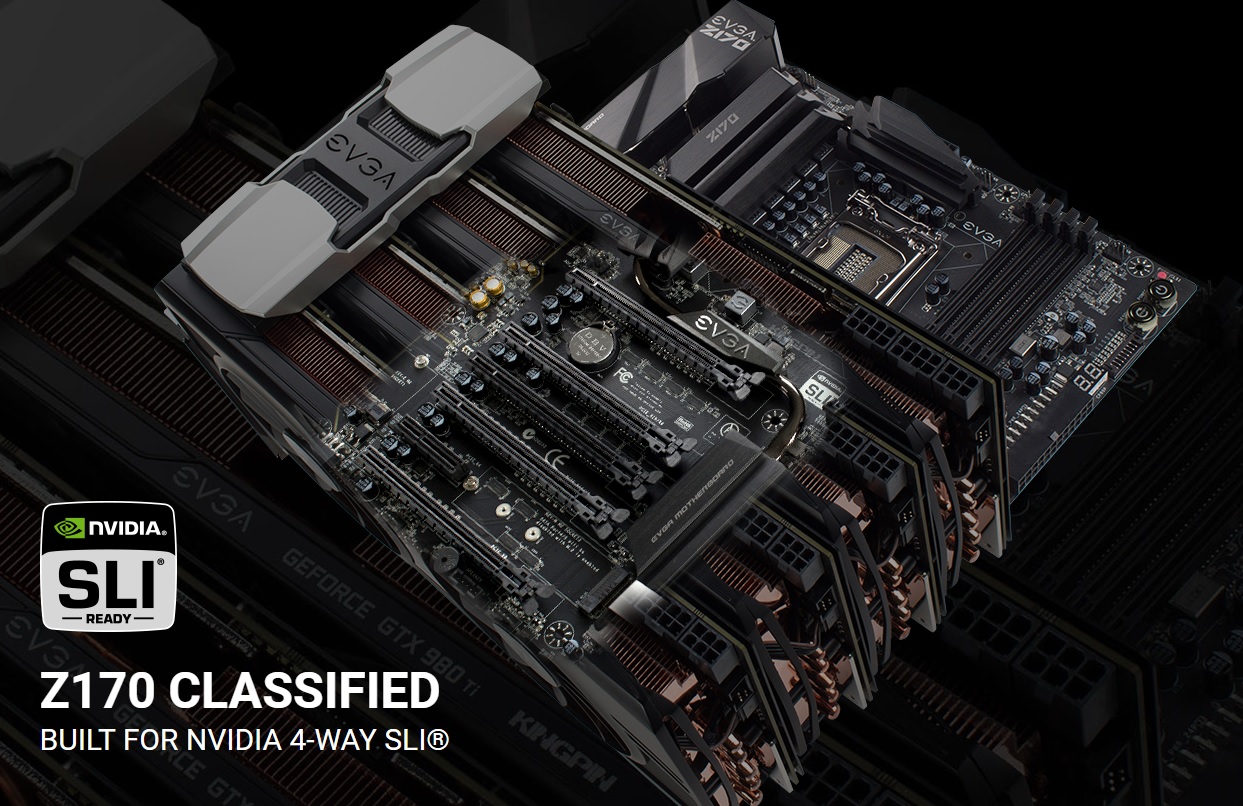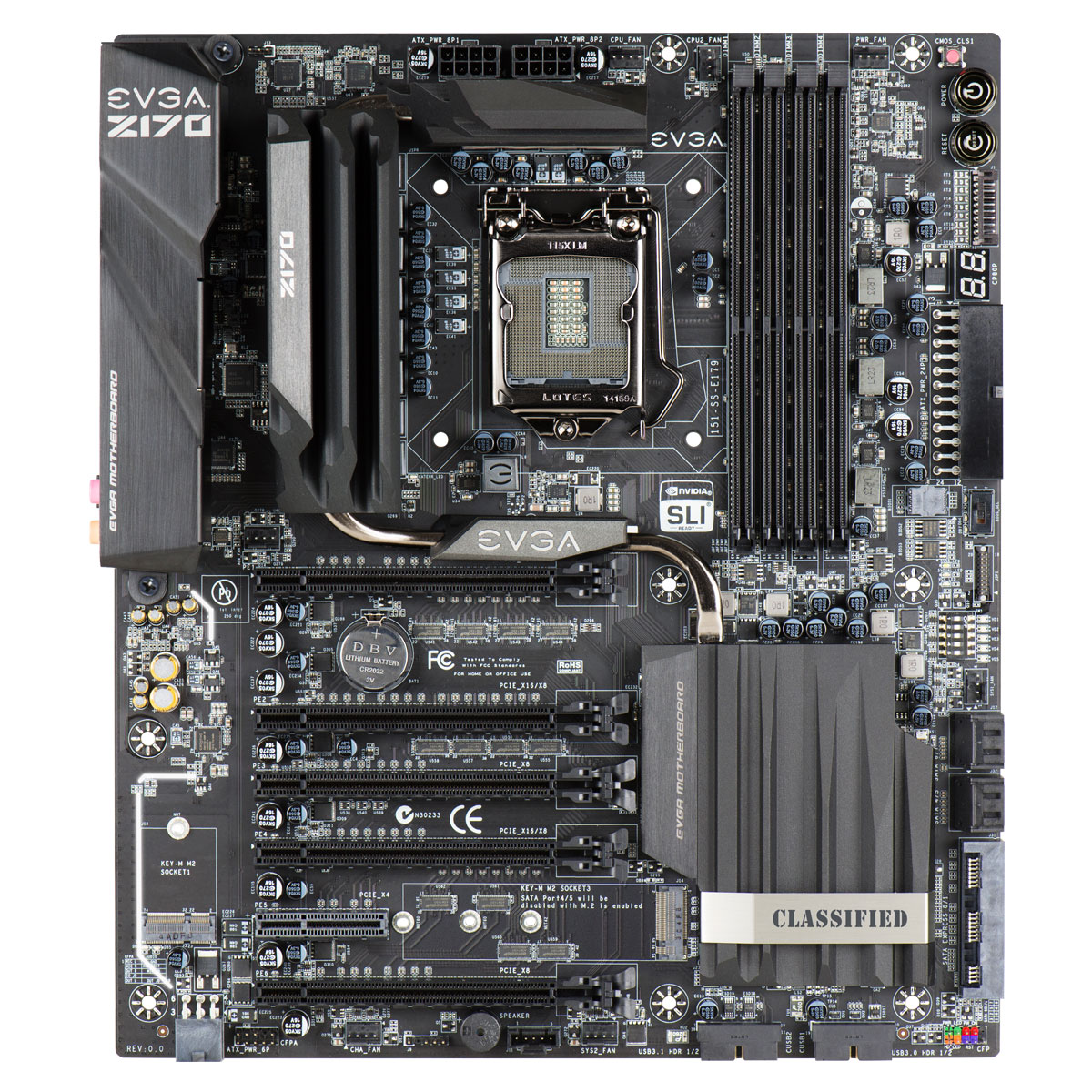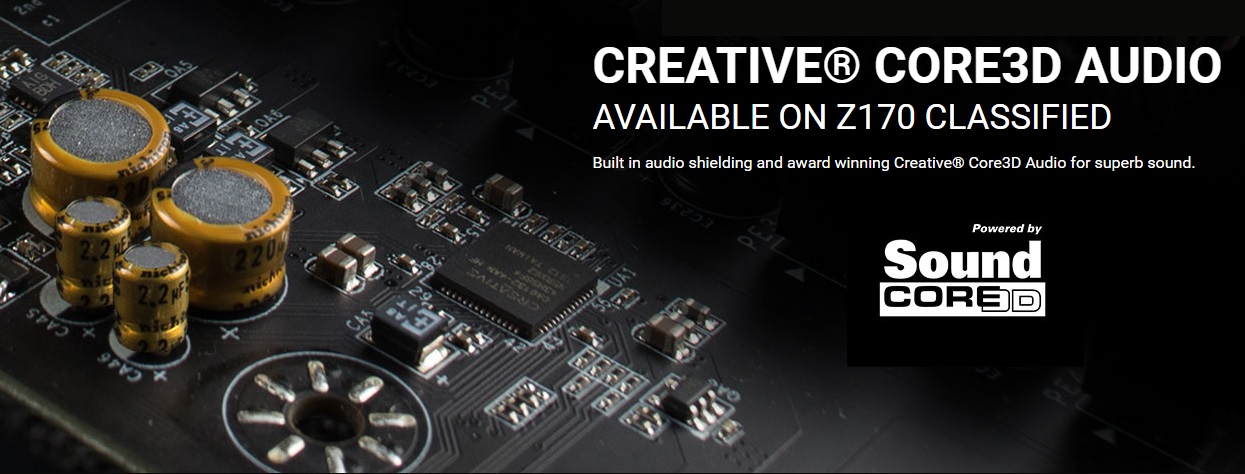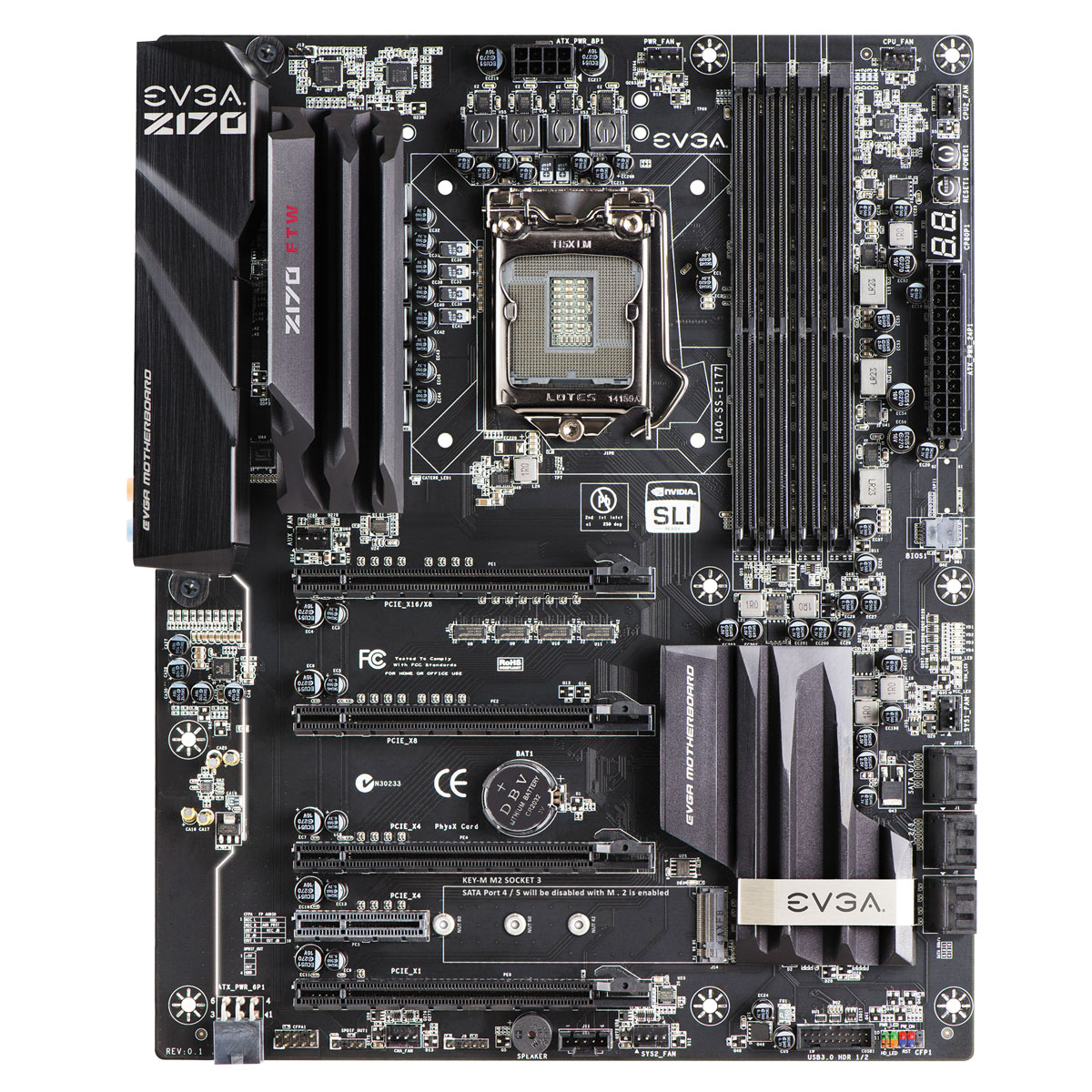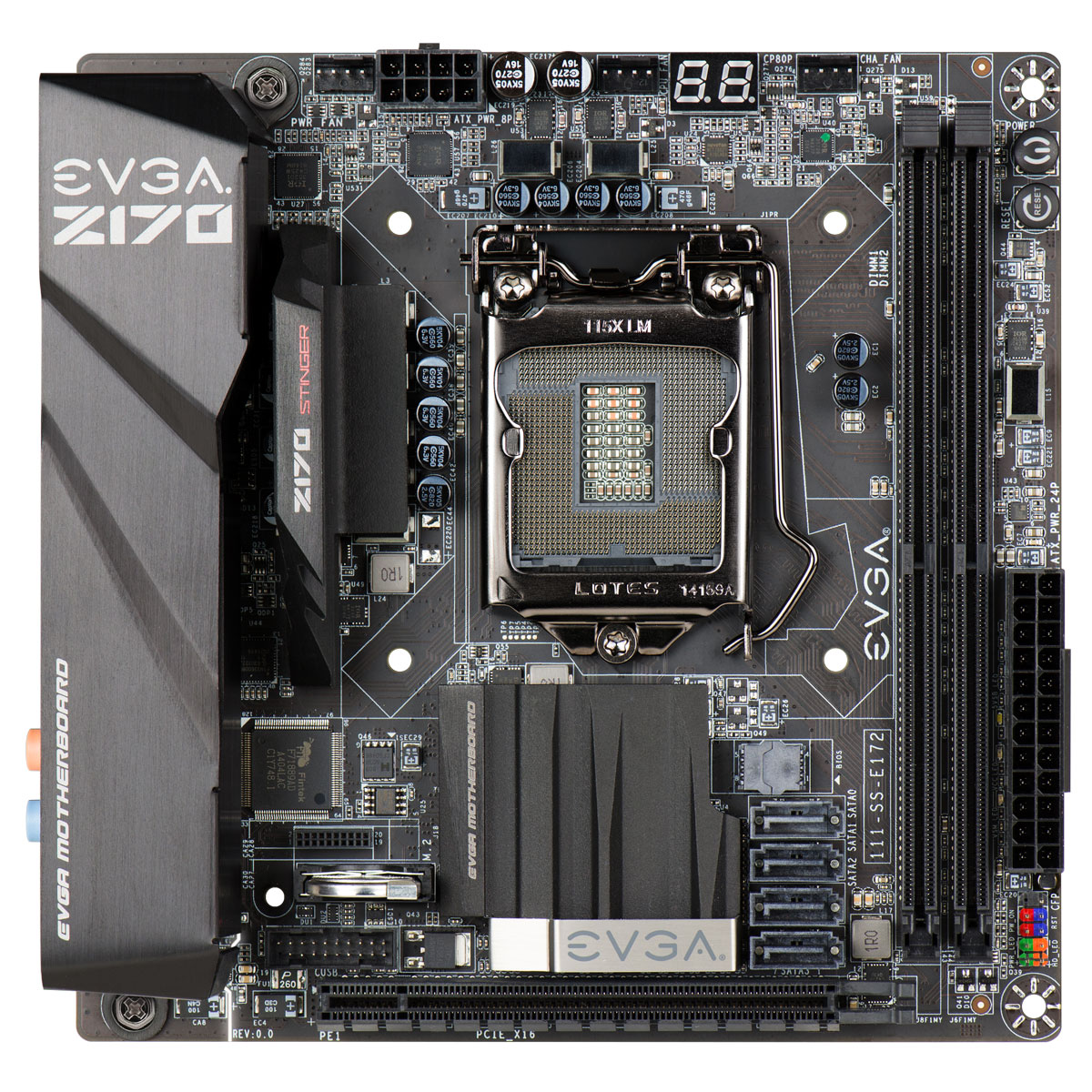EVGA Plans Three-Point Strike On Z170 With Classified, FTW And Stinger
While MSI readies a dozen boards to compete in the Z170 motherboard market, EVGA plans for a precision strike, firing three boards at key market segments.
Want to know what EVGA has planned for its flagship Z170 motherboard? Well, it's classified, so if I tell you, I'd have to kill you. With that in mind, let's dive into the EVGA Z170 Classified. Like all new Z170 motherboards, these new boards from EVGA take advantage of DDR4 to provide increased bandwidth relative to the older DDR3 standard.
The Classified motherboard is in an E-ATX form factor, which might make it difficult to fit inside of some cases, but it provides extra space on the PCB to fit additional chipsets. Thanks to this, EVGA crammed in two Intel i219/i210 Gigabit Ethernet NICs, an additional two SATA 6 Gb/s ports powered by a Marvell 9220 chip, and two USB 3.1 ports controlled by an ASMedia ASM 1142 chipset. For the audio controller, EVGA opted for a Creative Sound Core3D chipset.
For onboard connectivity, EVGA added no less than five PCI-E 3.0 x16 slots and a PCI-E 3.0 x4 slot. As a result, the board is capable of supporting up to a four-way SLI setup. There are also two M.2 ports located on the board, allowing for fast SSD drives to be connected.
The motherboard is clearly designed for overclocking and high-end gaming. In addition to the plethora of PCI-E ports, there are EVGA heat pipes to cool the chipset and the copious VRMs surrounding the CPU. The board also sports dual 8-pin CPU power connectors. Both of these features are aimed at better cooling and regulating the power systems of the motherboard, which is vital when overclocking.
Moving on to EVGA's second place motherboard, the EVGA Z170 FTW, we see the form factor shrink a bit to the more conventional ATX size. The board loses a lot with this reduction in dimensions, but the feature set employed on this board just feels lacking compared to the Classified model. The LAN config drops to a single Intel i219 Gigabit Ethernet controller, and the audio chipset moves to an unknown Realtek unit. Although the board has just as many PCI-E slots, it drops one M.2 slot, two SATA ports, and USB 3.1 support.
Also lost in the transition is the more advanced chipset and VRM cooling features, as well as the second 8-pin power connection. This is still without a doubt a board meant for gaming, but it stands in the shadow of the much more feature-rich Classified motherboard.
Get Tom's Hardware's best news and in-depth reviews, straight to your inbox.
The final motherboard that EVGA announced is the EVGA Z170 Stinger. This board is similar to the FTW board in features, but it moves to a much more confined mITX form factor. As a result, the board drops an additional two SATA 6 Gb ports and all PCI-E connectors, save for a single x16 slot. Both reductions in features are caused by the limited space available onboard. Fortunately, the M.2 slot is not amongst the features that were cut.
EVGA clearly is enacting a different strategy than other companies. While MSI, ASUS, ASRock and other companies have announced as many as 14 motherboards each, EVGA sends out only three to cover the market, attempting to spread them out to all areas of the Z170 market.
Currently, we don't have any pricing information from EVGA.
Follow Michael Justin Allen Sexton @LordLao74. Follow us @tomshardware, on Facebook and on Google+.
-
dstarr3 Sweet. I'll build one more Z97 computer this Christmas and then give this new generation of processors and chipsets a couple years to mature.Reply -
g-unit1111 I really want to build a mini ITX system. I was thinking I might use my old i5-3570K, but this new crop of Z170 motherboards are amazing in like every way, and it's great to see manufacturers catering to small form factor builds now. The Z170 Stinger looks like a winner.Reply -
norseman4 ReplyThe Z170 Stinger looks like a winner.
The thing that kills the stinger for me is that the M.2 is not available for drives. They have an adapter that converts what's on the board to M.2 Key E, which is not for storage. (No SATA)
Key M is PCIe x4 with drive support. (B is x2 with drive support)
-
IInuyasha74 Reply16401639 said:The Z170 Stinger looks like a winner.
The thing that kills the stinger for me is that the M.2 is not available for drives. They have an adapter that converts what's on the board to M.2 Key E, which is not for storage. (No SATA)
Key M is PCIe x4 with drive support. (B is x2 with drive support)
https://en.wikipedia.org/wiki/M.2
Key E supports PCI-E x2 connection, so it will work for the M.2 PCI-E based storage devices. -
g-unit1111 Reply16401639 said:The Z170 Stinger looks like a winner.
The thing that kills the stinger for me is that the M.2 is not available for drives. They have an adapter that converts what's on the board to M.2 Key E, which is not for storage. (No SATA)
Key M is PCIe x4 with drive support. (B is x2 with drive support)
I don't think this would be an issue for too many people building this kind of system especially if they want a Steam Box but then again you never know. -
Blueberries The classified board is the only one worth commenting on here, but the dual 8-pin power is really cool and I've never seen that before. I also like the heat-pipe connecting the MOSFETs/VRM/Chipset, not only does it look cool but it's an incredibly effective design. Furthermore the power delivery to PCI-e 3.0 looks phenomenal on this board and is a much better design than usually offered.Reply
Why only 4 DIMMS for an e-ATX board, however? -
norseman4 Replyhttps://en.wikipedia.org/wiki/M.2
Key E supports PCI-E x2 connection, so it will work for the M.2 PCI-E based storage devices.
I have never seen an M.2 SSD. M and B, yes, but nothing with the key so much closer to the middle. -
Blueberries Reply16401639 said:The Z170 Stinger looks like a winner.
The thing that kills the stinger for me is that the M.2 is not available for drives. They have an adapter that converts what's on the board to M.2 Key E, which is not for storage. (No SATA)
Key M is PCIe x4 with drive support. (B is x2 with drive support)
What? Why would you want SATA for storage if you have x2 PCI-e lanes?
16403091 said:https://en.wikipedia.org/wiki/M.2
Key E supports PCI-E x2 connection, so it will work for the M.2 PCI-E based storage devices.
I have never seen an M.2 SSD. M and B, yes, but nothing with the key so much closer to the middle.
Do you mean M.2 2242? Where are you seeing this anyways? Do you have a link to the adapter you're talking about? -
norseman4 http://www.evga.com/articles/00952/EVGA-Z170-Motherboards/Reply
Scroll down about half the page to see the Stinger. Under internal I/O it lists M.2 Key E. The other photos show what is included, other than the board, inside the box and you can see the adapter, and the physical keying of the M.2 slot.
And yes, this looks like 2242.
---
I'm looking to reduce the number of power cables in my current build, and get away from the 2.5/3.5 storage solutions, and AHCI. Some cables are required, of course, and my still desiring ODDs will add some more, but throwing an NVMe drive on a 4 lane M.2 would be good for me. (Hence why I said the Stinger doesn't work for me) -
norseman4 ReplyI don't think this would be an issue for too many people building this kind of system especially if they want a Steam Box but then again you never know.
What I think of when I hear Steam Box is a low-profile SFF machine using a very good iGPU. Putting the boot-drive on an M.2 SSD (AHCI or NVMe) seems to be ideal for this for simplified internals.
I can see having the WiFi solution here though
